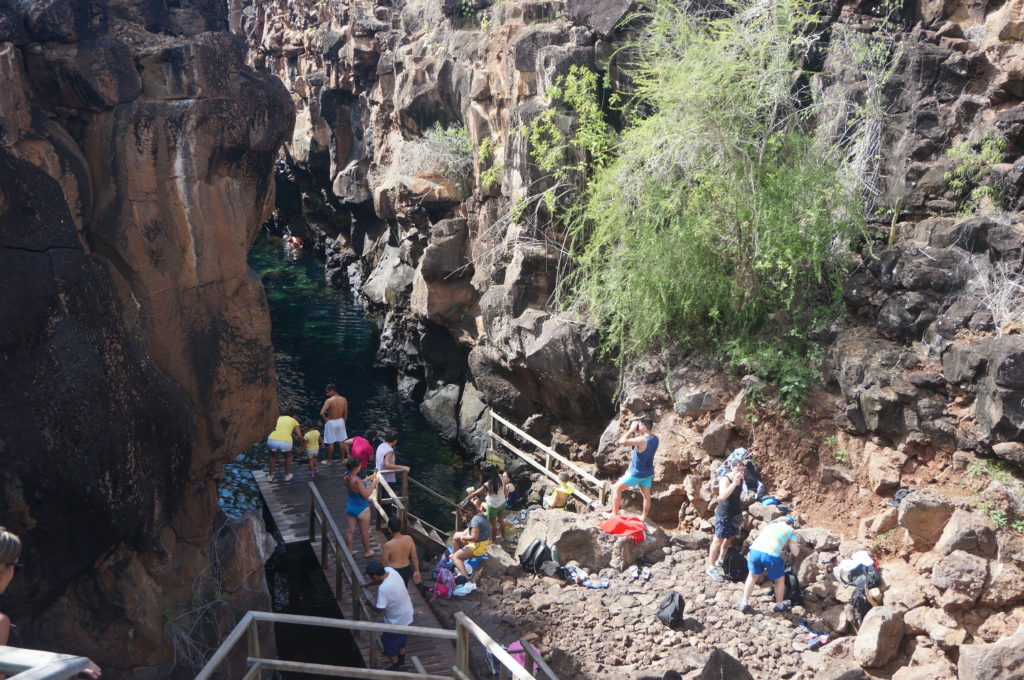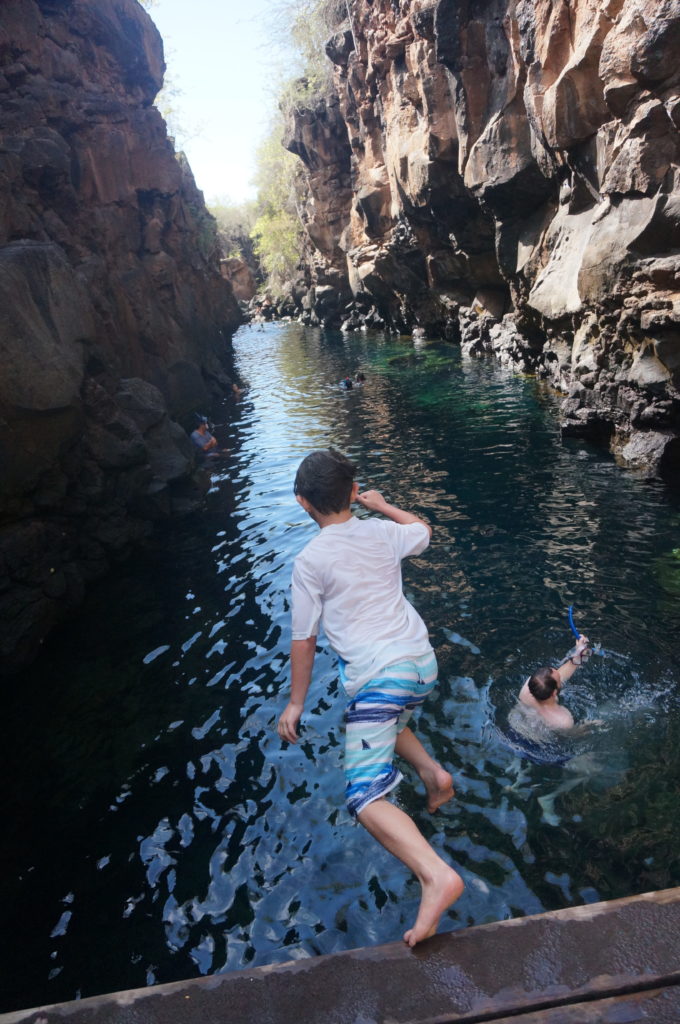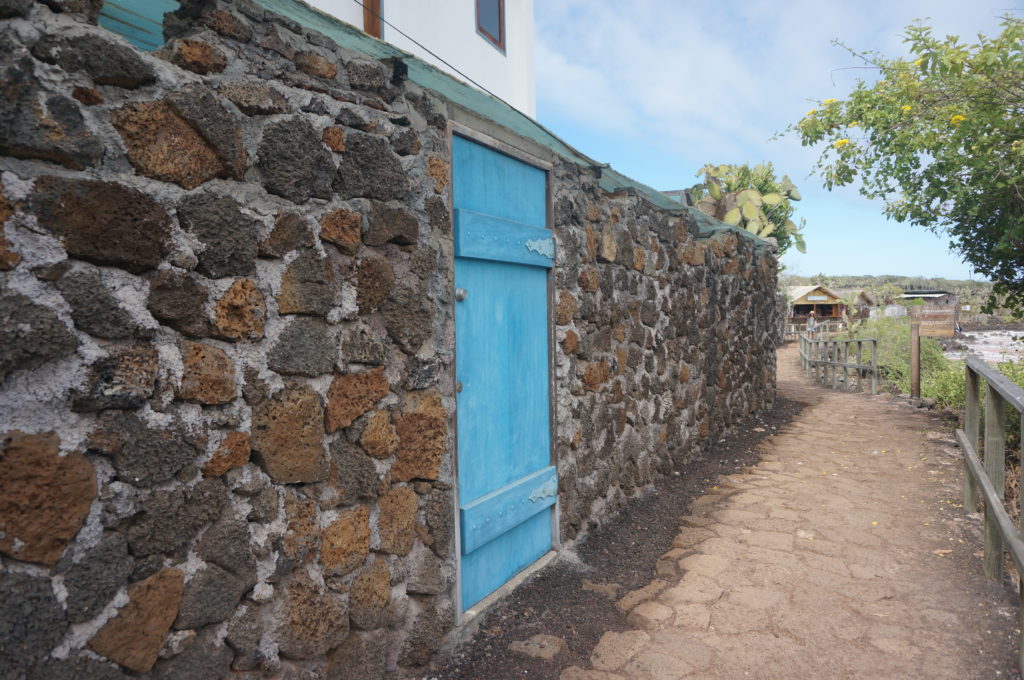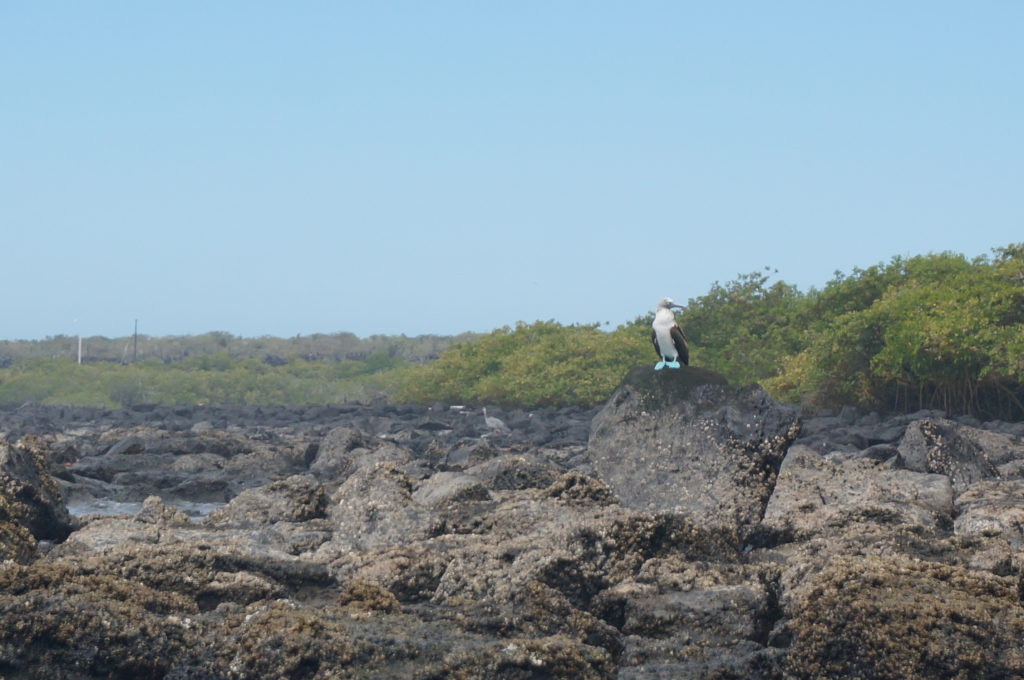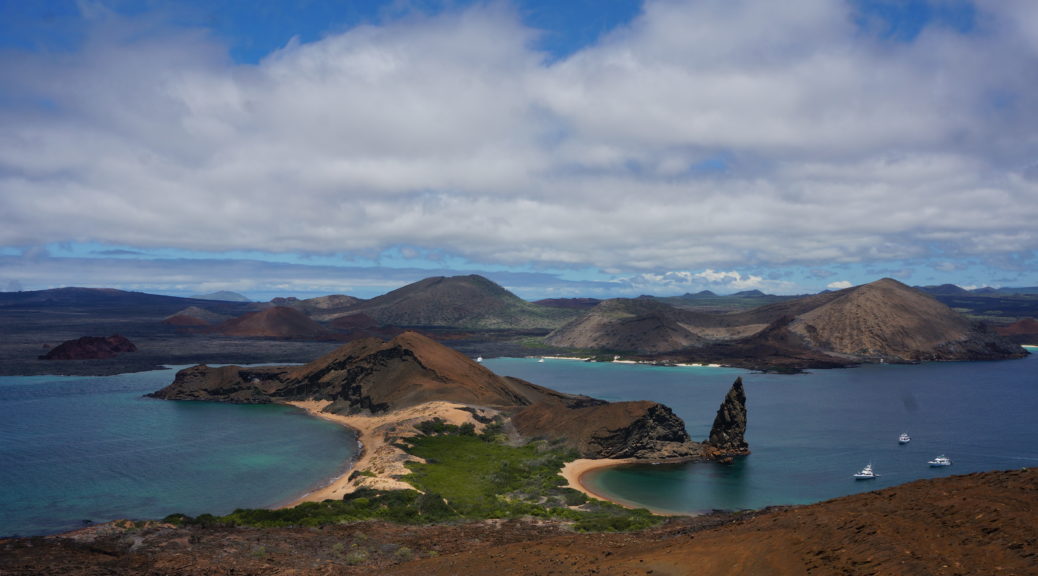I turned to look at my son. His eyes were wide and shining, and the hint of a smile played at the corners of his mouth around the snorkel. It was for this very reason that we came to the Galapagos, this unspoiled paradise.
There are more than sixty islands in the Galapagos archipelago, and during our week-long visit we planned to get a close look at four of them. We were staying on Santa Cruz, one of the few inhabited islands, and in our first two days there we had seen a bit of the place and encountered quite a few animals: marine iguanas, frigate birds, sea lions, pelicans, blue-footed boobies, whitetip reef sharks, huge eagle rays, and more..
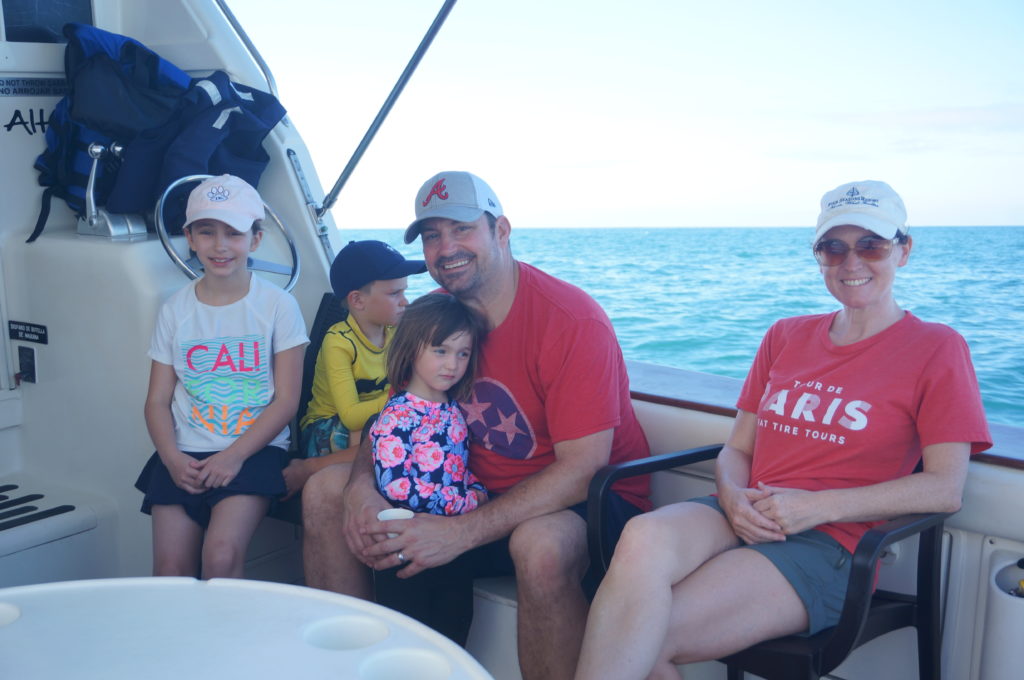
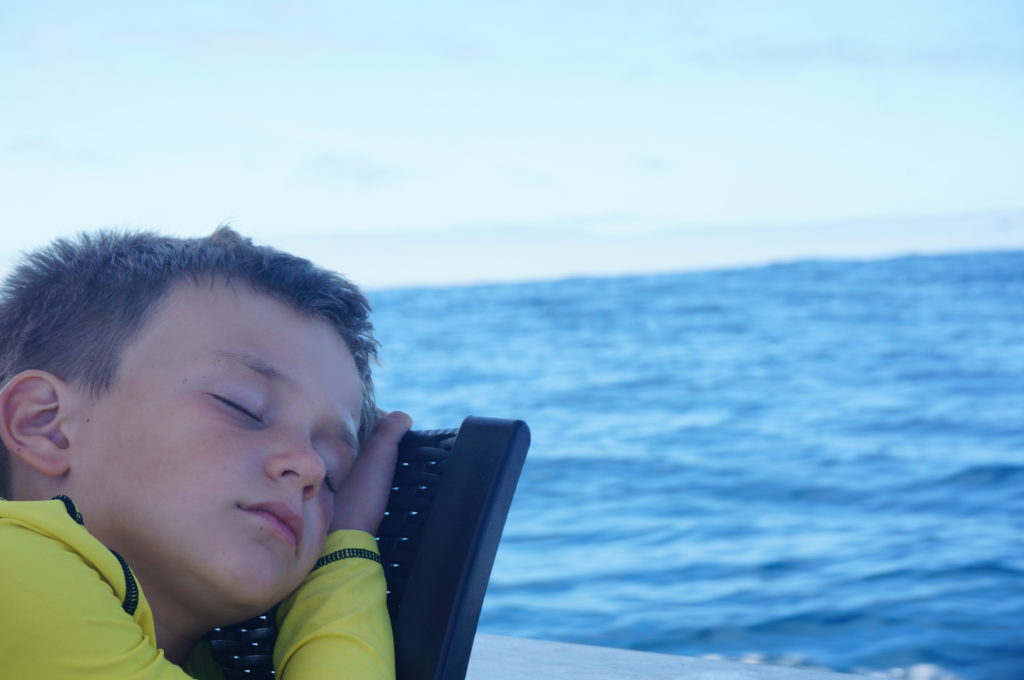
Now, at 7am on a hot Saturday morning, the two families (our friends David and Tanya; their three kids, Addison, Caiden, and Violet; and the Blew family) waited under a shady tree on the main street of town for our guide to take us to Santa Fe island for the day.
The town pier jutted out into the little harbor, the pier’s entrance flanked by a playground on one side and an expanse of concrete on the other. The latter seemed to be a combination skate park/pavilion, complete with a stage at one end. While we waited in the shade the kids took turns running up the embankment of the deserted skate park as far as they could, then sliding down on their butts, laughing the whole way.
Our guide appeared and introduced himself as Ghandi. He was an affable fellow dressed in khaki and sporting a wide smile, and we followed him out onto the pier. We boarded a water taxi, which shuttled us out to the Altamar, the sportfishing yacht that was to take us to Santa Fe.
The ride to Santa Fe was relatively comfortable, and we passed the time on the aft deck sitting in plastic chairs, watching scores of islands slowly glide by in the distance. The kids enjoyed taking the ladder up to the flying bridge where they could sit in the open air and feel the breeze, and when they tired of the view they came back down to the main deck and hung out with us.
We reached Santa Fe and took the dingy in to the beach, where we hopped out and were greeted by sea lions that lay sprawled everywhere on the sand. There were dozens of them, barking, grunting, shuffling along, taking naps and playing with each other in the water.
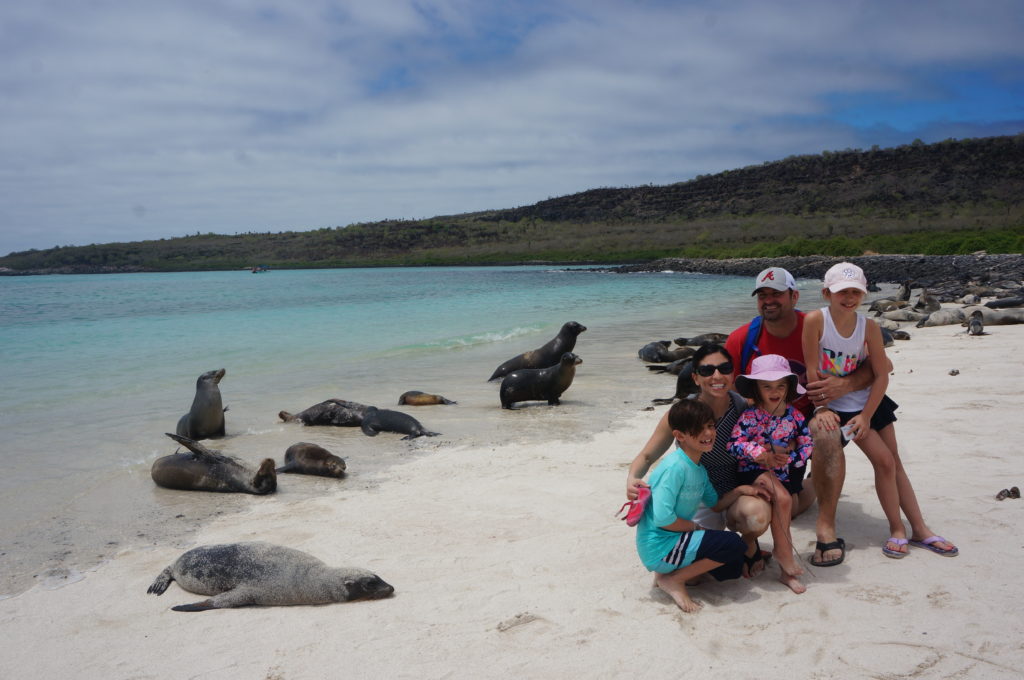
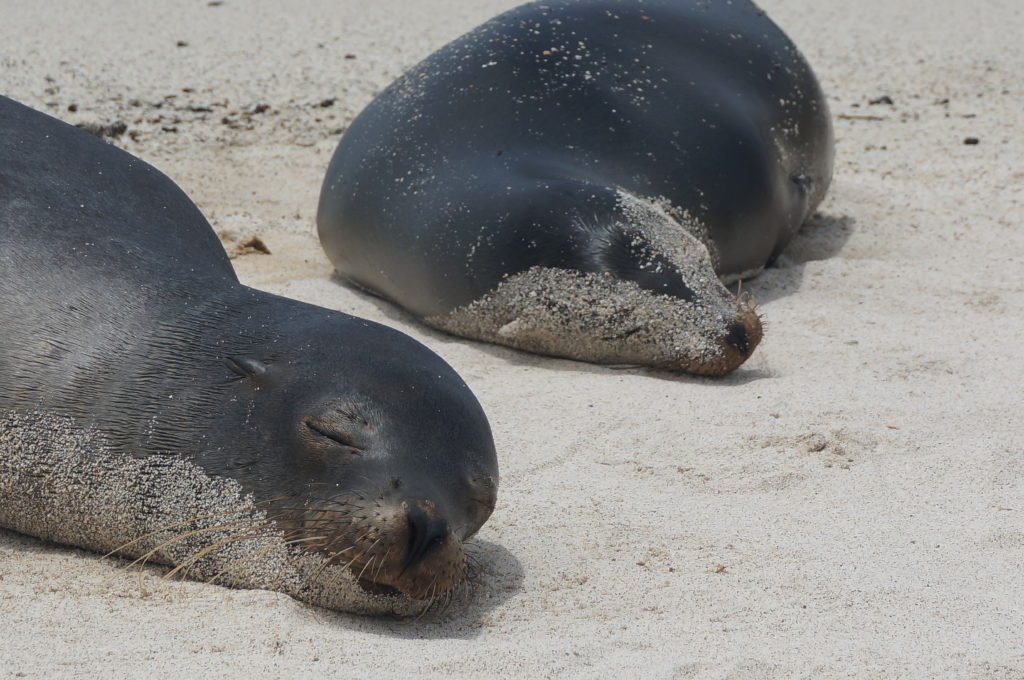
Ghandi led us across the beach and onto a sandy path that ran parallel to the shore and up a small hill. As soon as we left the open beach behind we could feel the heat and smell the strong odor of urine left by scores of sea lions. We wrinkled our noses and pressed on.
The path opened onto a cliff edge dotted with tall cacti and Ghandi beckoned us onward, stopping every few minutes to show us some new lizard, bird, or plant that could only be seen in the Galapagos: Lava lizards. Galapagos hawks. Santa Fe land iguanas.
We emerged onto another section of beach completely blanketed with sea lions. Most were females, pups, or juveniles, and we watched in fascination as pups nursed, juveniles played in the sand and surf, and the harried mothers tried to bag a quick nap before their needy offspring started nagging them with squeals and high-pitched grunts.
Small whitetip reef sharks prowled for fish just a few feet off shore, their slick fins jutting out of the surf. Curious eagle rays cautiously glided in towards shore, hung in the waves for a moment, then slid back out into the lagoon.
Ghandi let us spend about 45 minutes on the beach with the sea lions before calling the tender to come pick us up. The little rubber boat nosed its way through the sharks and the sea lions to the beach, and we carefully picked our way across the crowded sand, taking care not to come too close to any of the pups lest we piss off a protective mother.
The dingy took us back across the clear blue lagoon to the yacht, stopping along the way so we could ogle a huge eagle ray or sea turtle that happened to be swimming by, and we climbed back on board the boat to enjoy a fresh cooked lunch of grilled wahoo and rice.
After lunch the captain brought the boat around to the windward, rockier side of the island, where we jumped in for some snorkeling. The water was cold and the kids weren’t thrilled about getting in, but once they saw how close they could get to the sea lions in the water they relented.
Braeden had been snorkeling a few times before so he was very comfortable, though a bit chilly, in the water. We could see the sea lions on the shore so we swam in that direction. The current was strong, and I grasped his hand tightly and pulled him along.
The water grew shallow and the visibility dropped as we crept closer to where the surf was pounding on the rocky shore. In about four feet of water we stopped, swaying with the surge, and gawked at the scene in front of us.
At least a dozen sea lions, including some pups, were playing in the shallows among the rocks. They flowed around each other, swiftly twisting and diving in a graceful liquid dance. Braeden stared as they cavorted mere feet from where we floated on the surface. Occasionally one of the sea lions would nose over to us, its whiskered face and saucer-like brown eyes just a foot from our masks, and then dart away.
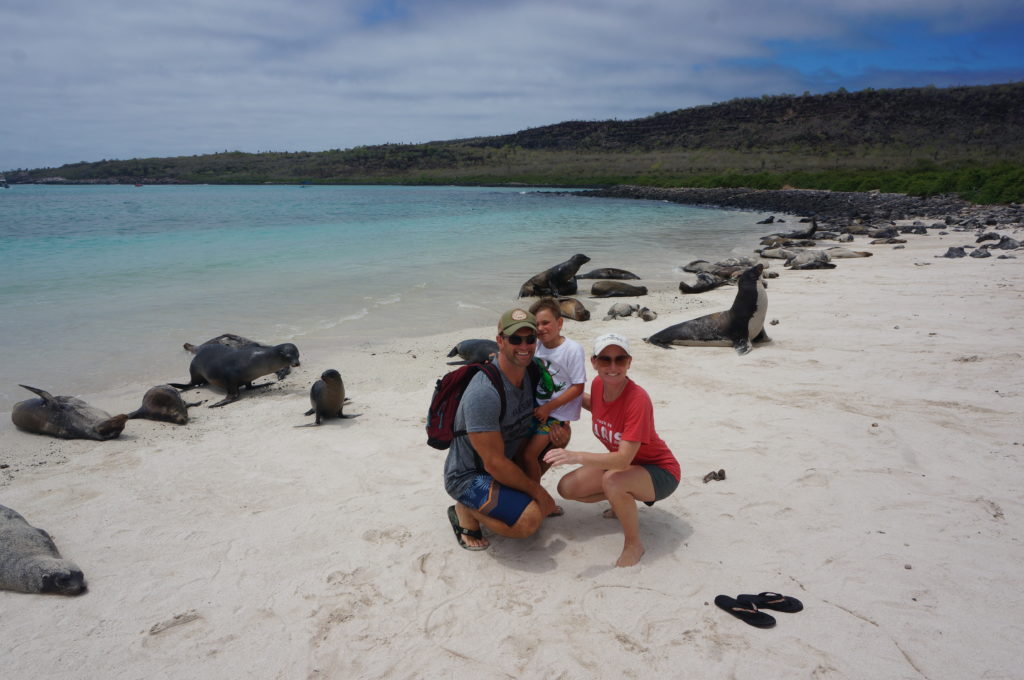
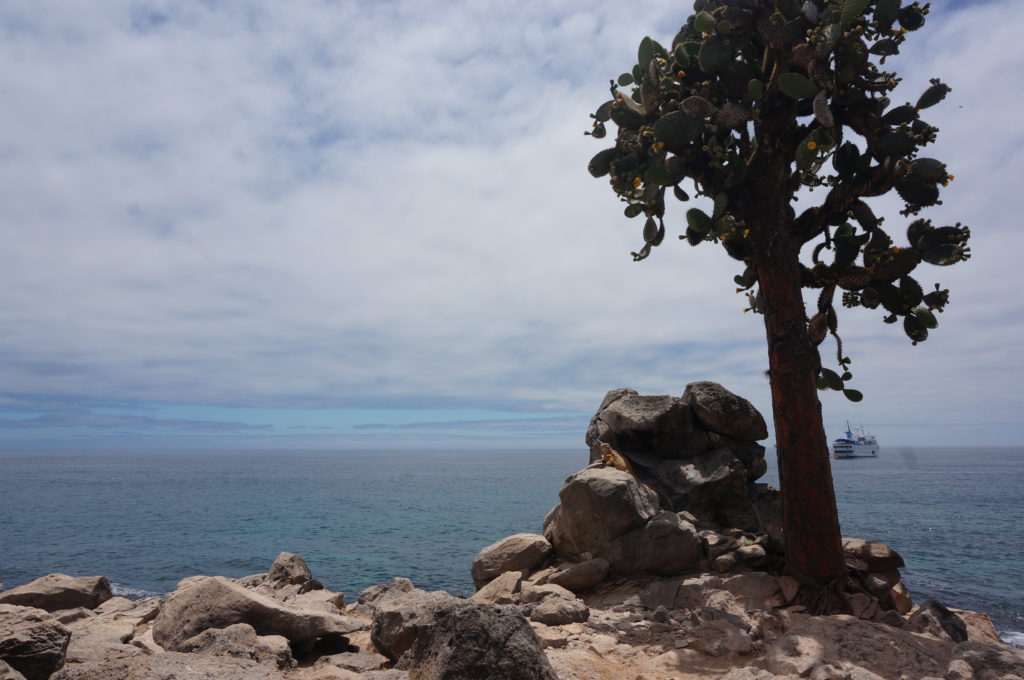
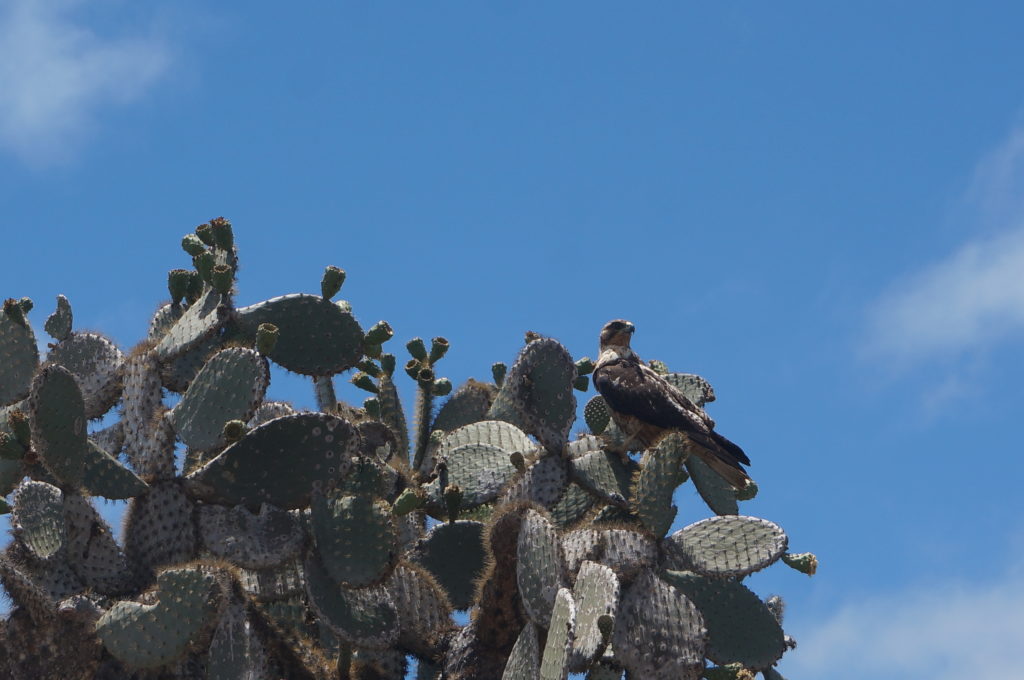
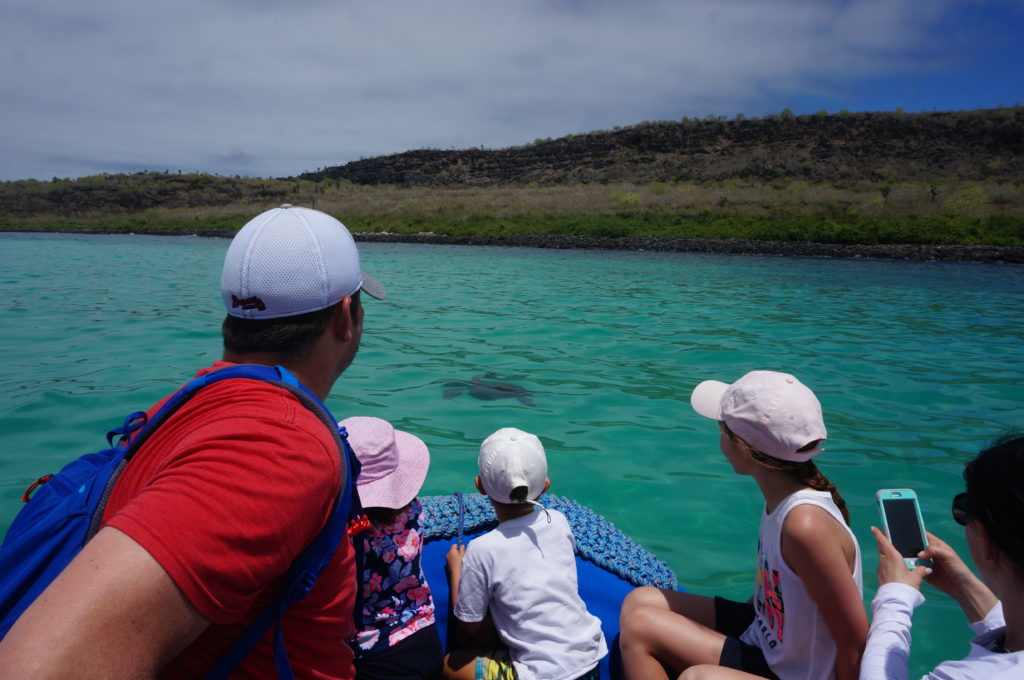
Juliann caught up and the three of us floated peacefully in the water, watching, for what seemed like hours. Finally Braeden started to shiver, so we poked our heads up and waved to the dingy to come pick us up. Braeden and Juliann clambered into the tender to warm up, but I stayed behind for a few more minutes to take in as much of the spectacle as I could. Ten more minutes went by, and I reluctantly waved goodbye to our new friends and swam back to the boat with a smile on my face.
Bartolome
The next day we boarded another boat, the Espanola, bound for Bartolome, one of the “youngest” islands in the Galapagos archipelago. At the tender age of one million years the little island has only recently begun to be colonized by the hardiest of plants and animals, making it a unique visit.
We landed our dingy on a small pier at the foot of the highest peak on the island, and under a blazing midmorning sun our group began the march up the narrow walkway to the summit. On the way we stopped to learn about the colorful lava cactus, the silvery tequila plant (from which, sadly, no actual tequila is harvested), lava lizards, and the volcanic rock that surrounded us.
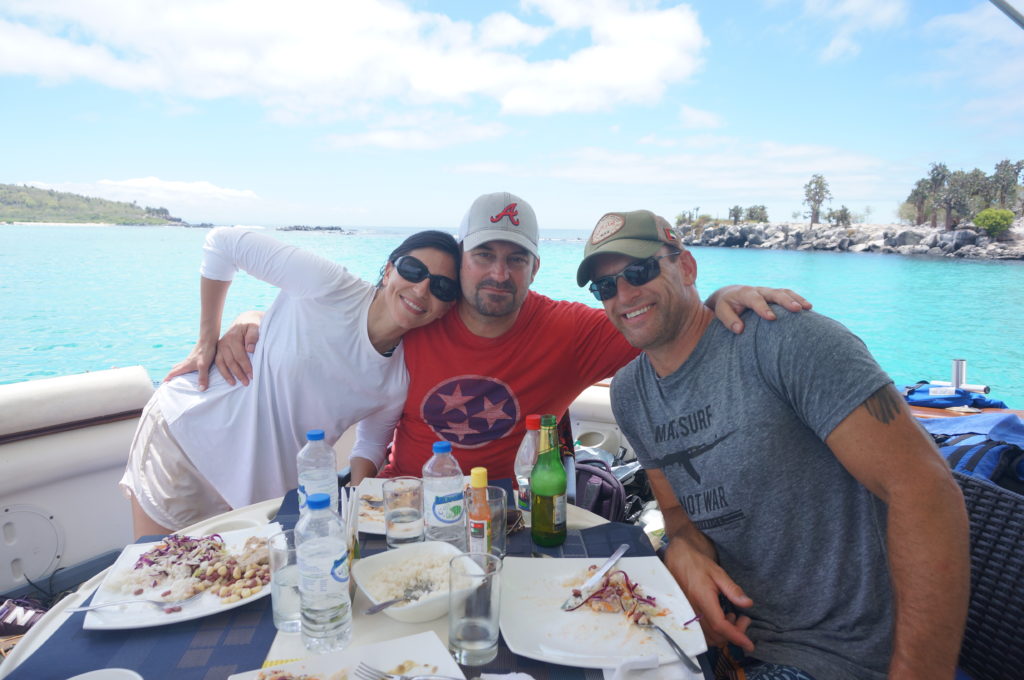
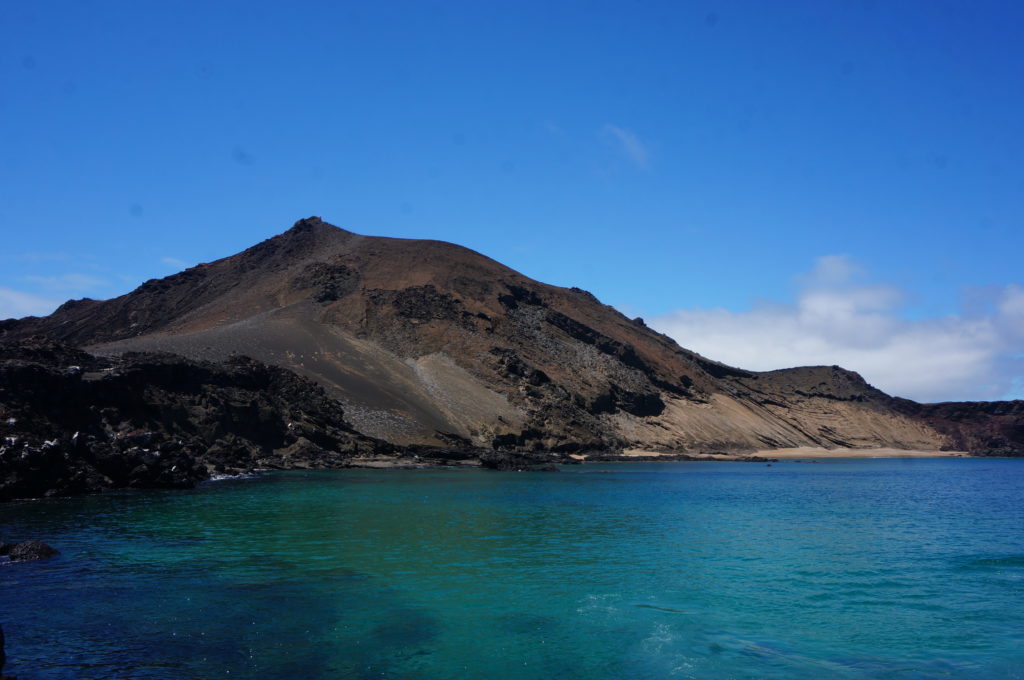
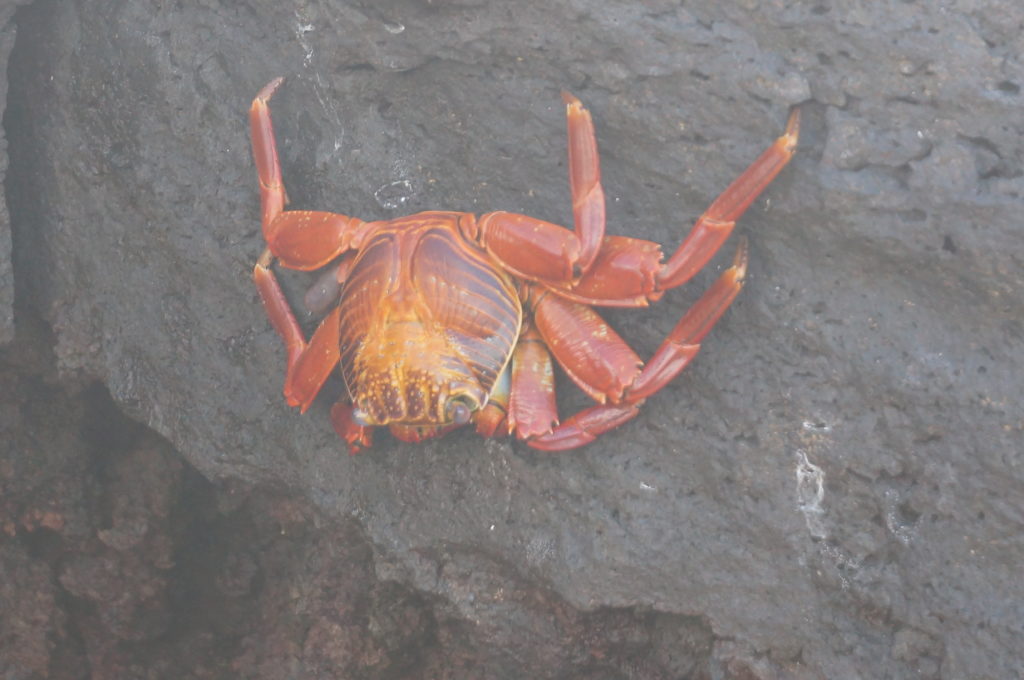
The hike to the summit wasn’t very difficult despite the heat. When we reached the top we took plenty of time to take in the most frequently photographed vista in the Galapagos: two back-to-back crescents of beautiful sand flanked by Pinnacle Rock, a tall finger of stone jutting from the water just yards offshore.
By this time we were hot, sweaty, and ready for a swim, so we hiked back down and took the dingy to the boat where we geared up for a snorkel at the base of Pinnacle Rock.
Our guide hinted at the possibility of seeing penguins, and we were excited, but we weren’t to be so lucky. We jumped in and found the water much colder this time around, and the kids didn’t last very long. We worked our way along the shore, and after about fifteen minutes the kids hopped on board the dingy to warm up. David, Juliann and I swam on around the base of Pinnacle Rock, where we saw a six-foot whitetip reef shark resting on the bottom in about fifteen feet of water. One of our fellow snorkelers, a young Ecuadorean fellow in the navy, motioned for me to swim down so he could take a picture. The shark seemed unconcerned as I dove down to within a few feet of it and posed while my picture was taken. I kicked for the surface and we swam on.
We swam around a cluster of rocks and discovered two sea lions playing tag below the waves, and we watched their graceful movements in silence.
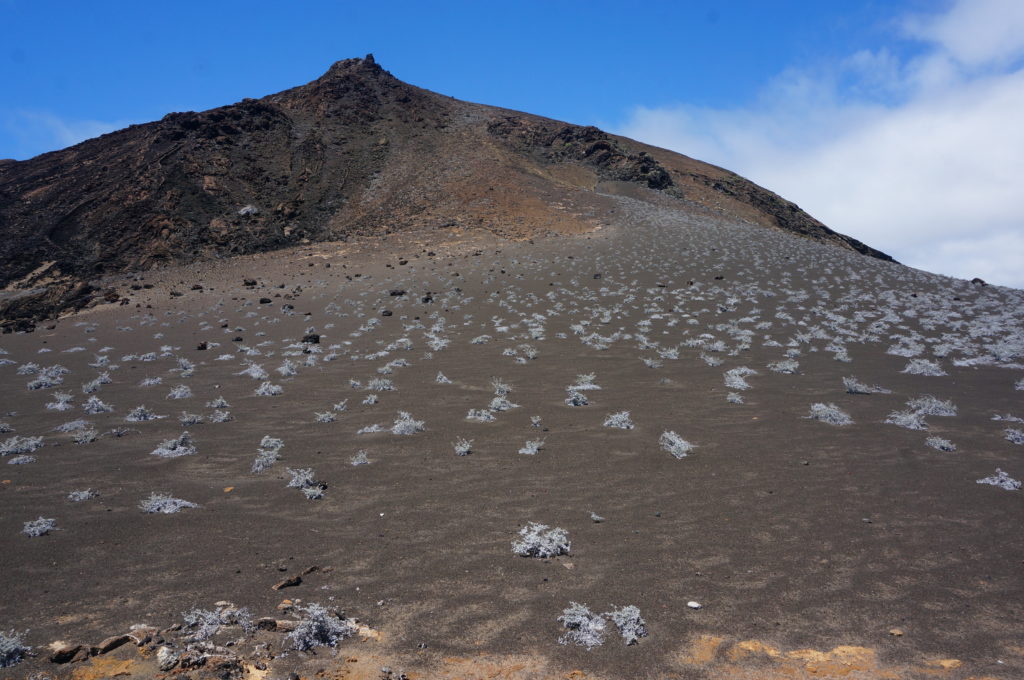
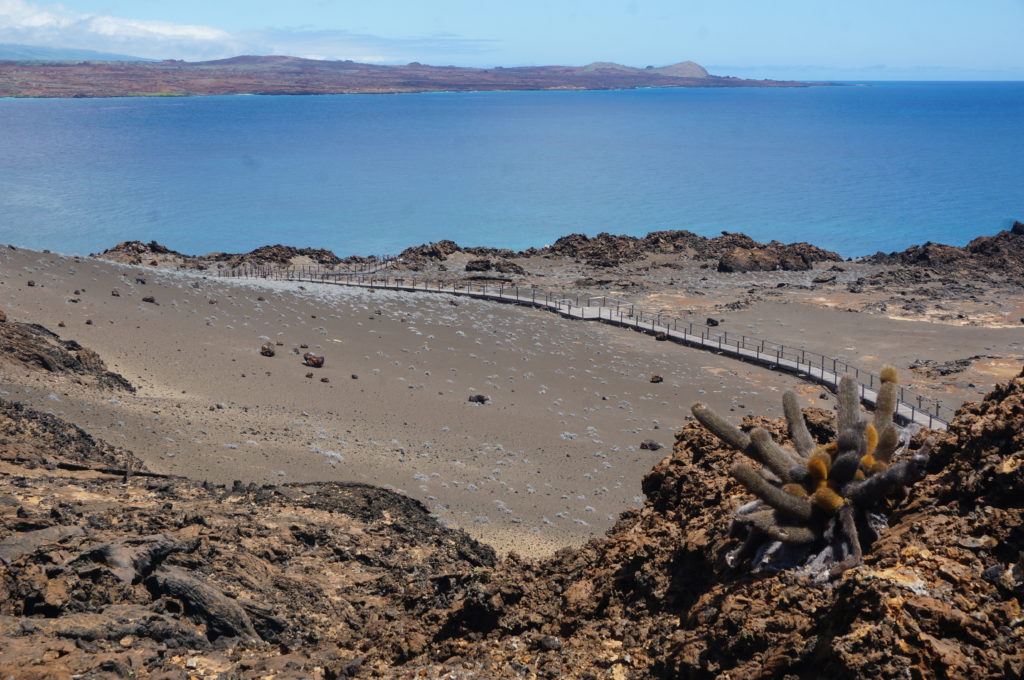
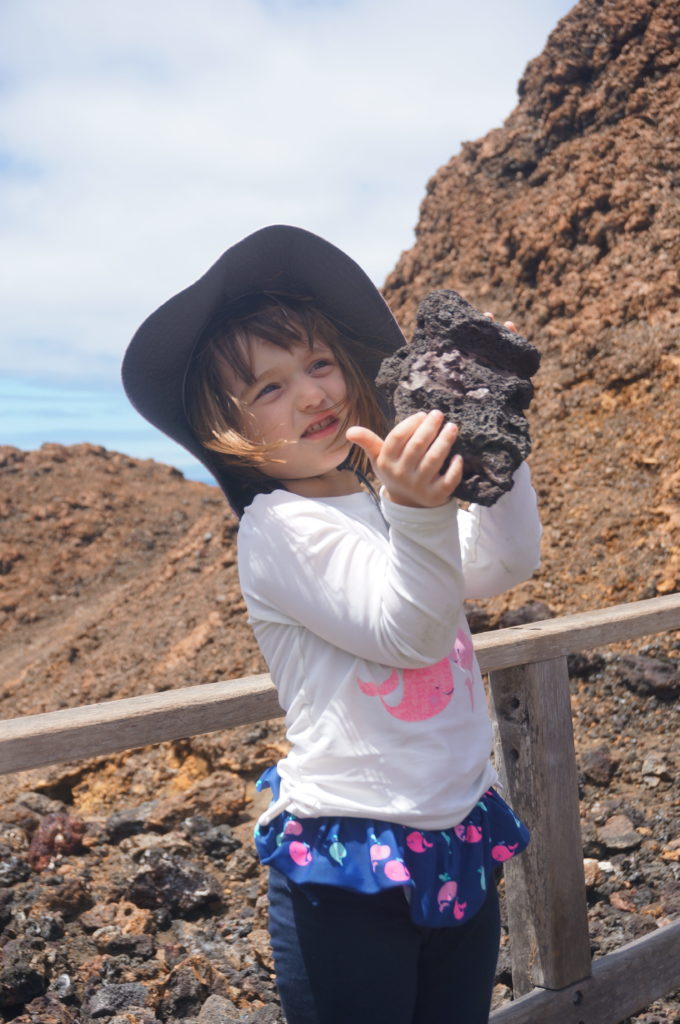
Our guide signaled that there were sadly no penguins out today, so we hailed the dingy to wrap up our snorkel and head back to the boat.
Upon returning to Santa Cruz we had a little time left in the day so everyone except Braeden and me (we stayed behind to handle a minor, um, disciplinary matter) walked from our villa to Las Grietas, a series of grottoes just a few minutes away.
Las Grietas turned out to be a wonder and we wished we had explored it sooner. The water was clear and cold, and the narrow walls of the grottoes rose straight up out of the water twenty feet or more. Tourists took turns jumping from the little dock into the water, while others watched with masks and snorkels as scores of fish darted about below.
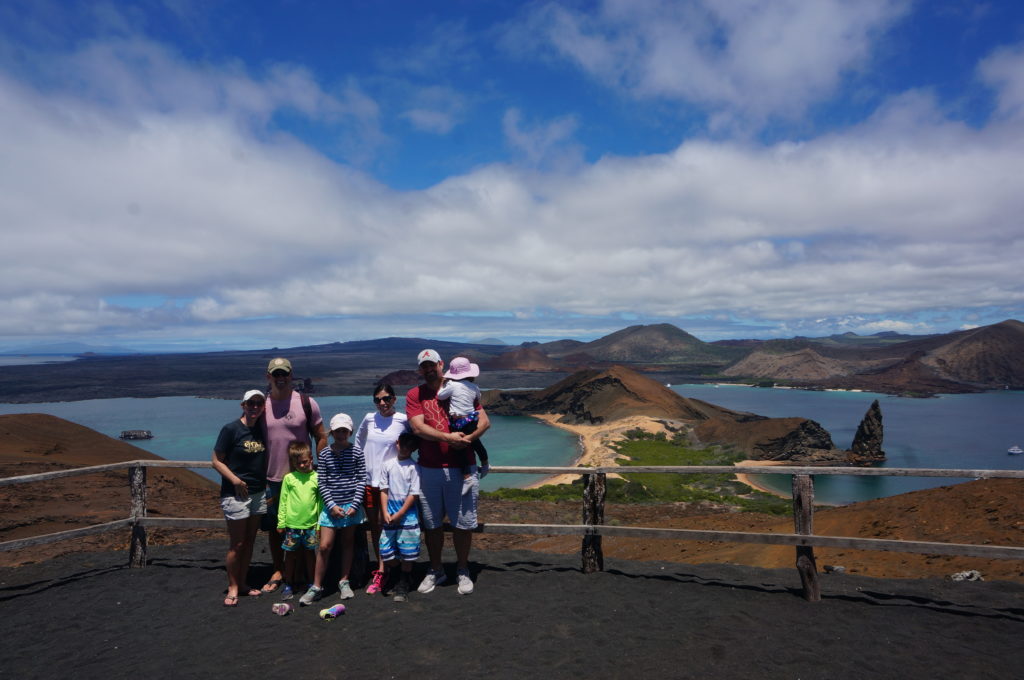
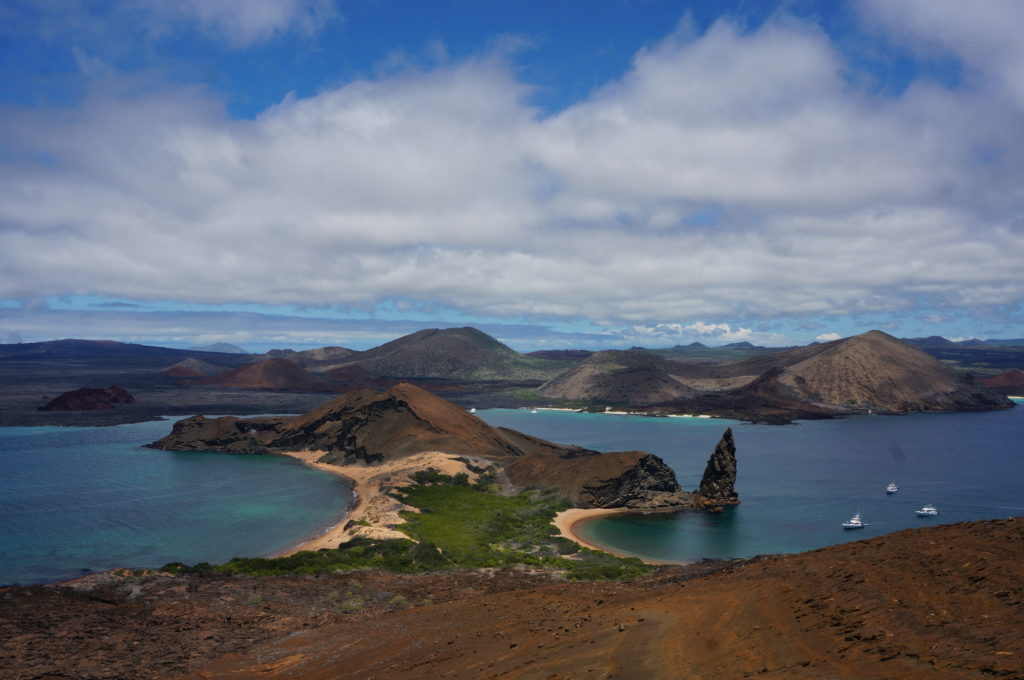
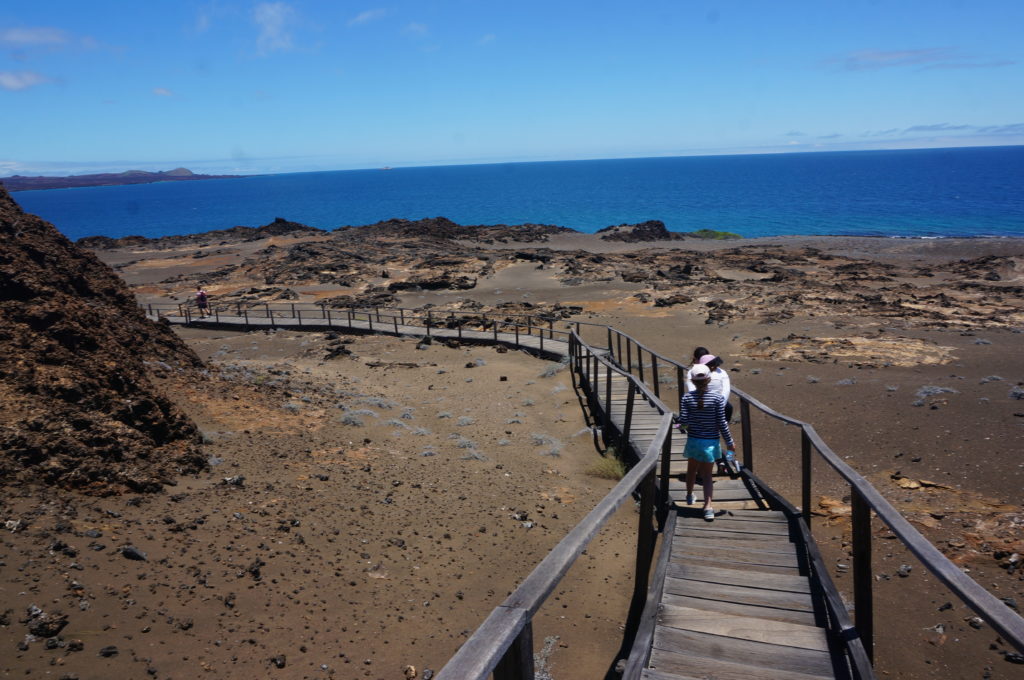
We hit our beds fully exhausted that night, visions of incredible animals and dazzling vistas still fresh in our heads. The next morning we rose before dawn to head to the dock and catch a ferry to our next destination, one that promised to be even more beautiful:
Isabela!
